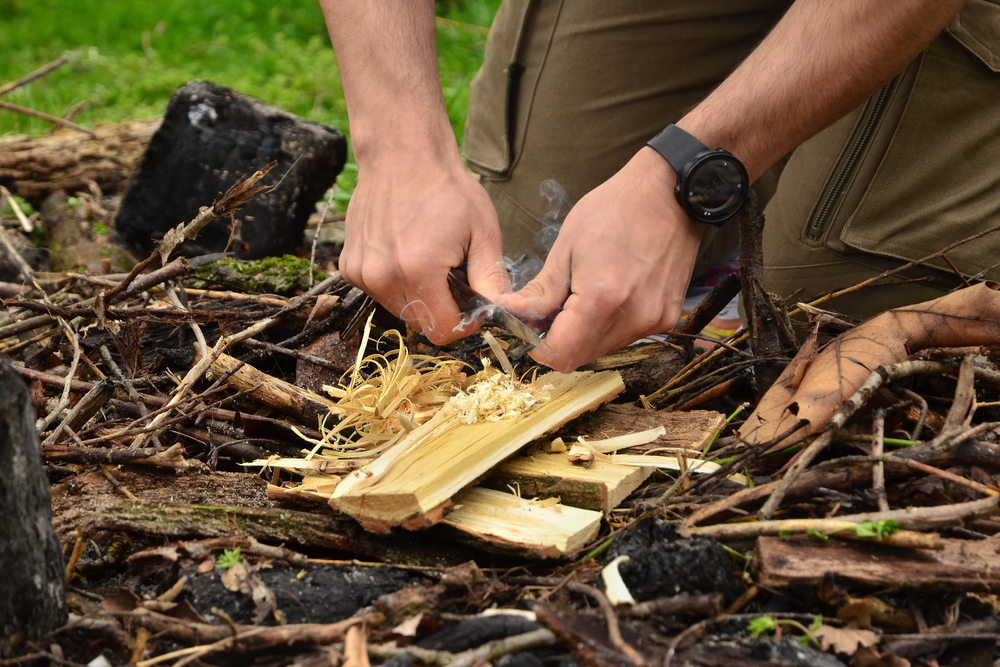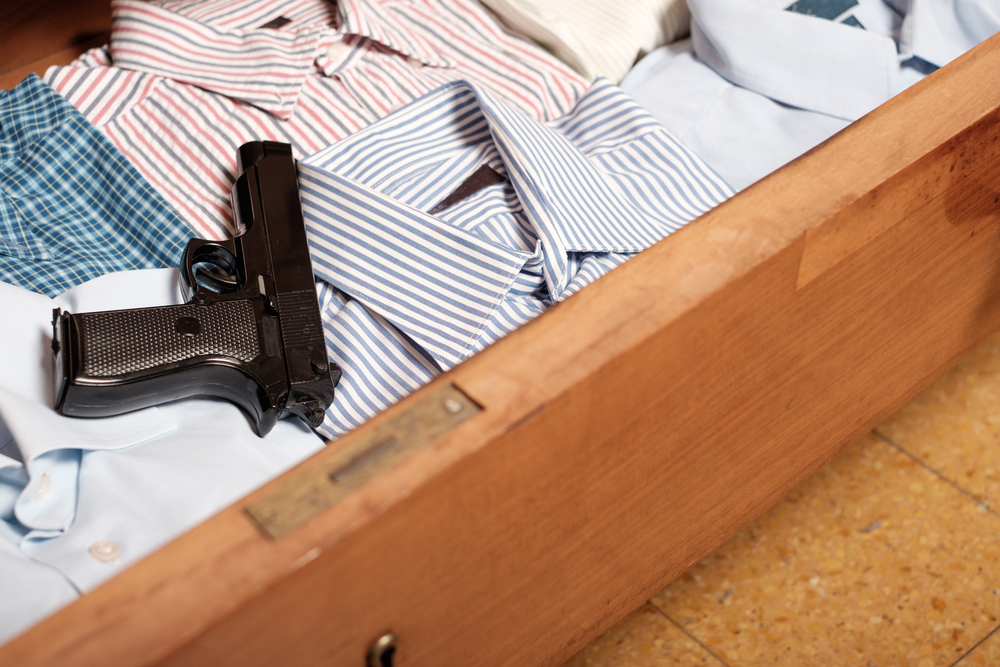Getting into the prepping world and transitioning to an emergency preparedness “lifestyle” challenge some folks and is downright confusing for others. Not everyone visiting Survivopedia has been a prepper for long, and I believe it’s mandatory to give some crucial info to the newcomers.
Becoming a prepper is a process, and there are many things you need to cover and consider. Even so, we all need to start somewhere.
Even if you are an experienced prepper and feel you can take on the world and face everything that comes your way, check out this article and make sure you aren’t overlooking stuff. After all, the real question about being prepared is not what you know but what you don’t.
1. Seek knowledge
The first advice I can give to those starting with emergency preparedness is to seek and find information and read as much as they can.
Take advantage of the books you can discover, engage in discussions, and read a lot.
Save all the information you can find online if you feel it will do you any good down the road, be it wilderness survival, homesteading of full-on SHTF scenarios.
Participate in discussions with other preppers to bring your insights and challenge the efficiency of your reasoning against others in the prepping community.
Learn the lingo since there are some key concepts you need to know and understand.
Take it all in with an open mind and form your own opinion about what you read and see if it’s the right thing for you and yours. If it does make sense for your situation, learn it and incorporate it into your daily life through practice and constant improvement.
2. Start small
Most preppers start their journey with the end goal in mind, and sometimes it becomes just too much to handle. Even more, the buying frenzy that begins to manifest in the early weeks or months of prepping becomes overwhelming.
How are you going to get a year’s worth of resources in just a few weeks?
How are you going to store them and where?
The logical answer is to avoid doing it all at once since it just can’t be done by the average Joe.
As food and water go, you can start by setting aside an empty or unused space in your closet and fill it gradually (in the following months) with enough of the foods your family usually eats and a water supply to last for at least a month. Such stores will cover your needs for most emergencies or natural disasters.
If you manage to accomplish this goal, you can move on to cover a more extended period, like six months, and build from there. Of course, if that’s part of your plan and you don’t decide that bugging out would be a better option.
You shouldn’t put all your eggs in the same basket in such a case, and you must make sure you can carry some of these resources with you.
Keep in mind that you need to do what you can base on your resources (budget and time). It would help if you didn’t put yourself in a situation where your monthly budget is used to acquire resources and your time spent only on prepping (neglecting other things such as family, work, or hobbies).
There are always ways and alternatives to the expensive ways you want to do. You don’t need the latest and the most costly camping gear for your bug-out bag, and you probably don’t need to build an underground bunker in your basement to keep yours safe.
Circling back to the food issue (since this is the most pressing concern for many preppers), you could probably build a year’s worth of supplies with cans and boxes from your local supermarket. Buy them when they are on sale, and you won’t have to spend thousands of dollars on boxes of dehydrated food and other survival food novelties.
“What to start with first?” or “What should I buy first, and where do I start?” are the questions I’m asked often by those new to prepping, and my answer is always the same. While many variables depend on each individual’s situation and needs, my suggestions for those starting now are to begin a food storage program, buy a good water filter, and get a dual-purpose firearm for hunting and protection.
3. Keep practicing
I think that more than 70% of those reading a lot of the available information on prepping and survival believe that reading about that stuff will be enough. Most of them do not bother to challenge the information they gather. They fail to realize that practical experience is critical and is the only first step to acquiring helpful knowledge.
You need to test your skills to be sure you can do what you think you can do. By practicing what you learn, you will discover little details and insights from actually doing something.
As a quick example, if you built a 50-pound bug out bag with everything you need to keep you alive for 72 hours or more, you won’t realize how difficult it will be to carry it to cover by foot that 10-mile trip needed to reach your bug out location or to meet with your friends. You may do so for a few miles, but you will have difficulty advancing as the terrain changes, and you will not reach the meeting point in time.
Even more, if you leave too late in the day, chances are you may not find your way in the dark. Carrying a heavy bob and stumbling in the dark on uneven terrain will soon become the perfect recipe for disaster.
All the things you need to do when SHTF should now be left for the actual emergency, and you need to rehearse and refine your plans and skills. By doing so, you will be much better prepared when you need to employ them.
4. Don’t stop growing
The key to a successful prepping lifestyle and handling the unexpected is finding ways to grow and add to your existing skillset. Seek always to learn new things to keep yourself ready and become self-sufficient.
New preppers need to inventory their skills to have a starting point from which they can build up. By figuring out what essential skills you have (now what you think you have), you can compare them with what you need to know and take the necessary steps to improve them.
We need to constantly remind ourselves that our survival sense has been dimmed in this age of technology. All the new skills (or most of them) we have acquired have no real value during a crisis or natural disaster emergency.
There are specific skills, the old ones such as gardening, carpentry, foraging, basic wiring, hunting, and fishing, etc., that we seem to have forgotten, and the modern man cannot rely anymore on such skills to survive. When SHTF, having such skills will not only serve you and yours well, but you can employ them to barter and procure the resources you need or want.
5.The only thing sure is uncertainty
Most folks out there love to minimize risks, and as a general rule, they try to be prepared for whatever they might face. However, because there are many different kinds of SHTF scenarios that one may face, there is a pressing need to have a plan B in place and even a plan C.
You should have at least one backup plan for something you depend on (which is not solely related to prepping). For example, if you plan to bug out into the woods and plan on cooking your meals over an open fire and use said fire to warm your shelter or purify water, you must be sure you can light a fire no matter what. That being said, the smart way to go about this would be to have three ways to start the fire, a Bic lighter, a fire piston, and a Ferro rod.
When storing your food and first-aid supply, the smart thing would be to place some of these supplies in multiple locations (caching included) if your main stash is destroyed, damaged, or stolen.
Also, get everyone in your family on board with your prepping plans and turn them into a backup plan. You shouldn’t be the only one knowing how to provide basic first aid, how to operate the water purification system, or trained in using the weapons that are part of your overall prepping plan. Make sure your family members are familiar with all of this so that they will carry one and survive the ordeal in case something happens to you.
Concluding
Every new prepper needs to understand that to succeed in their prepping journey, they need to approach this calmly and knowledgeably. The information contained in this article is an excellent way to get you started. Your decision to become more self-sufficient needs to be approached rationally because only then will you be able to take care of yourself and those who depend on you.
























































































Thanks for some great things to think about. I’m a beginner prepped and am always looking for ways to add to my knowledge.
Please how do I get a hard copy don’t like PDFs want book for multiple references thank you
Hello, Bmurphy. One of our colleagues will contact you via email Thank you for your interest.